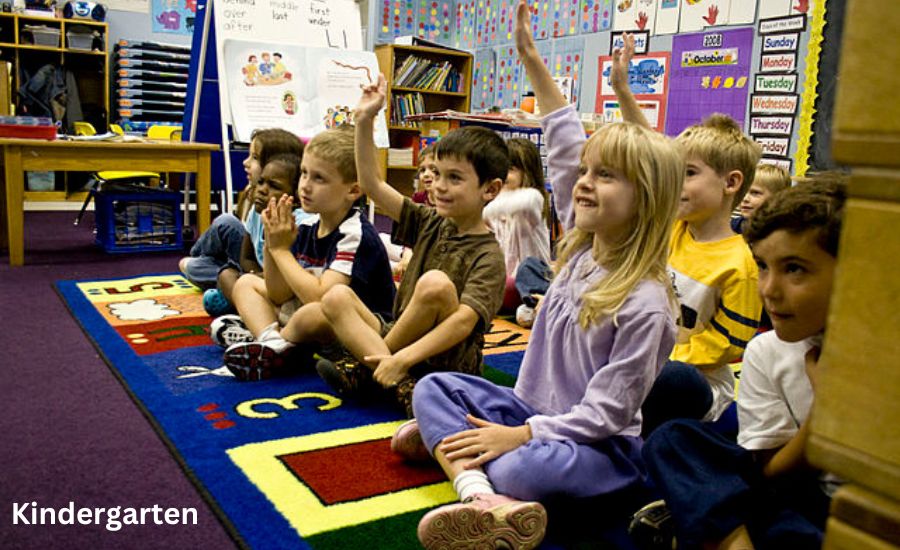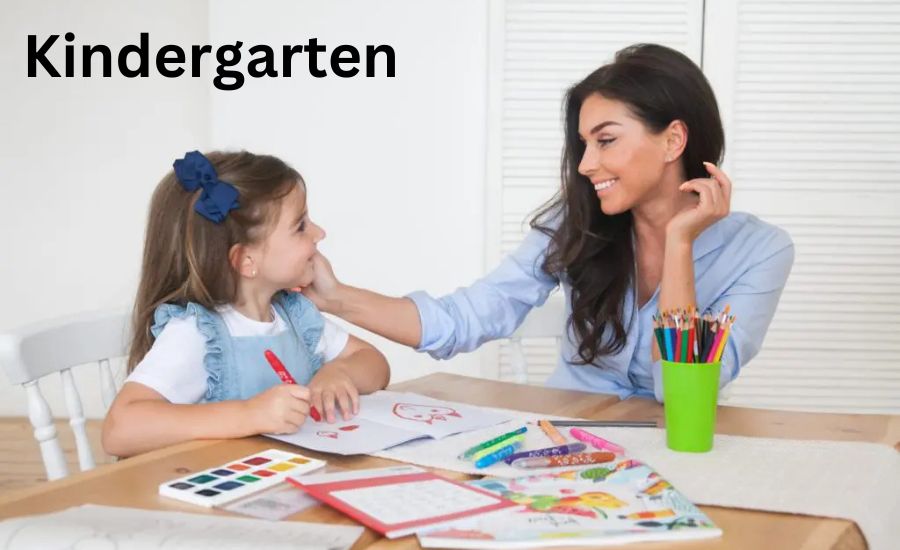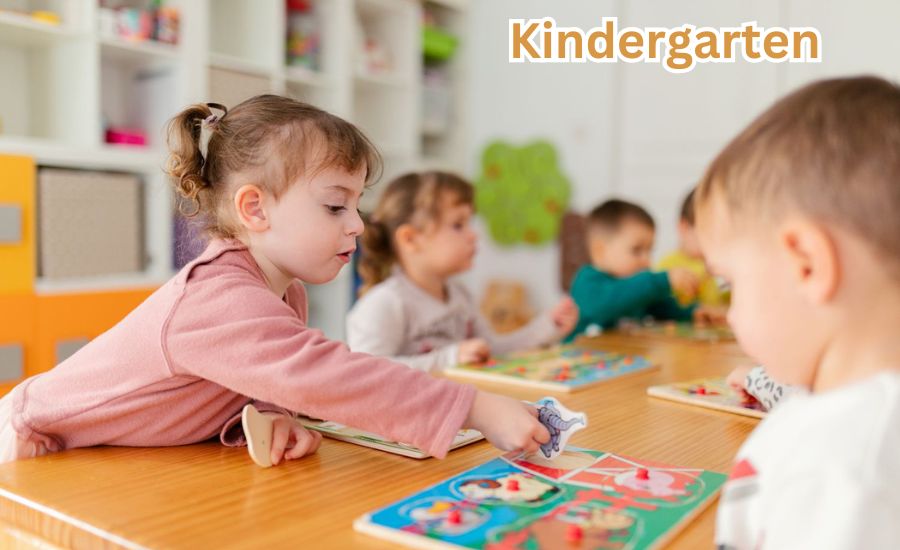When it comes to early education, one of the most common questions parents ask is, What age is kindergarten? It’s a simple question with an important answer that can impact your child’s educational journey. If you’re a parent wondering when is the right time to send your child to kindergarten, you’re not alone. Many parents find themselves uncertain about when to start, how to prepare, and what kindergarten truly involves.
In this article, we will dive deep into the concept of kindergarten, who it is for, and what age your child should be when they start. Plus, we’ll cover important details on how to make the transition smooth for your little one.
Who Is Kindergarten For? Understanding the Basics
Kindergarten is often the first formal school experience for many children. It is a foundational part of early childhood education and typically comes after preschool. At its core, kindergarten helps children develop essential skills such as socialization, early literacy, basic math, and motor skills, setting them up for success in later years of education.
While some families may choose to send their child to preschool before kindergarten, kindergarten itself is part of the primary school system. It’s not just about learning academics; it’s also about learning how to interact with peers, follow instructions, and engage in a structured environment.
What Age Is Kindergarten? The Standard Range Explained

The question, What age is kindergarten? varies based on where you live and the local education system. However, the general age range for children starting kindergarten is between 5 and 6 years old. In most parts of the world, children begin kindergarten at the age of 5 and continue for one year before progressing to first grade.
The U.S. System:
In the United States, the typical kindergarten age is 5 years old. However, there are exceptions depending on the state, as some allow children to start as young as 4 or as old as 6, depending on the cutoff dates for the school year.
In general, a child who turns 5 before a specific cutoff date—usually around September 1st—will be eligible to start kindergarten in that school year. For example, if your child turns 5 in June, they would typically start kindergarten that fall.
International Variations:
Different countries have different kindergarten age requirements, which might also affect when your child starts:
- Canada: Similar to the U.S., children generally start kindergarten at age 5.
- United Kingdom: Children usually start “Reception” (the equivalent of kindergarten) in the year they turn 5.
- Australia: Kindergarten starts at age 5, with the school year beginning in January.
What Determines the Right Age for Kindergarten?
While there is a general guideline for what age children should start kindergarten, it’s important to remember that every child is unique. Parents and educators consider several factors when deciding if a child is ready for kindergarten.
1. Birthday Cutoff Dates:
As mentioned earlier, the date by which your child’s birthday falls often determines when they can start kindergarten. Some school districts may have strict cutoff dates that align with the start of the academic year, while others may offer more flexibility. If your child is close to the cutoff, you may have the option to delay or accelerate their start based on their readiness.
2. Developmental Readiness:
Readiness is not just about age. A child’s ability to focus, follow directions, and engage socially is also important. If a child is not emotionally or socially ready for the structured environment of kindergarten, it may be better to delay the start and allow them to develop further in preschool or at home.
3. Prior Preschool or Pre-K Experience:
Some children may be ready for kindergarten at 4, especially if they’ve attended preschool or pre-kindergarten. These children might already be familiar with basic school routines and have a good foundation in early literacy and math skills.
Key Milestones and Skills for Kindergarten Readiness

Before sending your child to kindergarten, it’s helpful to understand the key milestones that will make the transition smoother. Here’s what children typically need to know or be able to do when entering kindergarten:
- Basic Communication Skills: Can your child express their needs and feelings verbally? Do they understand basic instructions like “Please sit down” or “Clean up your toys”?
- Social Skills: Is your child able to play with others, share toys, and take turns? These skills are essential for functioning in a classroom setting.
- Self-Care Skills: Can your child use the bathroom independently, put on their coat, and manage snacks or lunch? Kindergarten teachers often expect children to be able to handle basic self-care.
- Motor Skills: While kindergarten isn’t focused solely on physical skills, it’s important that children can handle activities like holding a pencil, cutting with scissors, and playing outside.
- Basic Knowledge: Knowing their ABCs, basic numbers, colors, and shapes will give your child a head start in the classroom. However, these things can also be learned in kindergarten.
How to Prepare Your Child for Kindergarten
Once you’ve decided on the right age for kindergarten, the next step is preparation. Here are some things you can do to help your child get ready:
- Introduce Routines Early: Kindergarten involves a daily routine. Begin practicing morning routines, like waking up on time, eating breakfast, and getting dressed independently.
- Encourage Social Interaction: Playdates and group activities can help your child get used to interacting with other children. It’s a great way to practice sharing and taking turns.
- Focus on Academics at Home: While it’s not necessary to push your child too hard academically, simple activities like reading books together or practicing counting can give them a head start.
- Visit the School: If possible, visit the school or classroom with your child before the first day. Familiarizing them with the environment can help ease any anxiety.
May Also You Like: Brandon-marsh-wife
Signs That Your Child Might Not Be Ready for Kindergarten
While kindergarten is an exciting milestone, it’s important to recognize that not all children are ready at the same time. Here are a few signs that your child might not be ready for kindergarten yet:
- Difficulty with Separation: If your child has trouble separating from you or becomes extremely anxious about school, they may need more time.
- Limited Social Skills: If your child has difficulty playing with other children or following simple group rules, they might benefit from more preschool experience.
- Struggles with Self-Care: A child who cannot manage basic self-care tasks may find kindergarten overwhelming at first.
Conclusion
So, what age is kindergarten? The typical age for kindergarten is between 5 and 6 years old, but the right time for each child depends on factors like development, social readiness, and prior experience. Whether your child is 4 or 6, the goal is to ensure they are ready for the structured learning environment and excited for their first school experience.
Remember, each child develops at their own pace. By keeping track of milestones, watching for signs of readiness, and providing the right support, you can help your child enter kindergarten with confidence and enthusiasm.
Stay informed with the latest news and updates on Discoveressential.com
